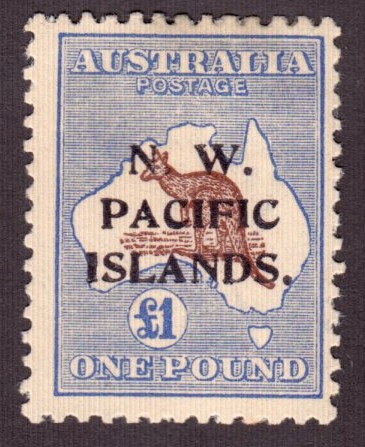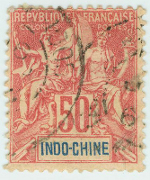
Discussion - Member to Member Sales - Research Center

Discussion - Member to Member Sales - Research Center


In place of a stamp are the initials "FM" or FRANCHISE MILITAIRE), reflecting the soldier's free-franking privilege; many countries allow their soldiers in combat zones to send mail without charge.
I bid just a dollar for it, and that was the only bid. Shipping is $3! But it was a bargain as far as I'm concerned, just because of one word in the return address, parachutiste, translated into English as "paratrooper":

The return address also includes the initials "A.F.N.", for Armée d'Afrique, the unofficial but commonly used term for French Army units recruited from or normally stationed in French North Africa (Morocco, Algeria and Tunisia) from 1830 until the end of the Algerian War in 1962.
Paratroopers were a relatively new type of soldier in 1954 when the Algerian War began. Russia and Italy were the first to organize paratroop units, shortly before the Second World War; Germany and then the Allies made extensive use of them during the war; France sent parachutiste units to Indochina during the First Indochina War, where they were involved in 150 airborne combat operations against Communist insurgents between 1945 and 1954.
In 1984, France issued a stamp commemorating the role of the parachutistes in the Battle of Dien Bien Phu; there can't be many commemorative stamps that commemorate battles that were lost rather than won:

Following the Indochina debacle, parachutistes were a decisive factor in prosecuting the Algerian War, even though France lost the war (and the parachutistes came to be scorned as result of war crimes they committed, not that the Algerian insurgents weren't themselves guilty of equally appalling incidents). The Algerian War was also the first time that helicopters were used to insert troops into combat zones, a practice that the Americans copied in the Vietnam War. In mid-1968, the famous American Army 1st Airborne Division was redesignated as an airmobile division, then in 1974 as an air assault division, changes which reflected the division's shift from fixed-wing airplanes as the primary method of delivering troops into combat, to the use of helicopters.
Bob

2 Members
like this post.
Login to Like.
i guess war does make strange bedfellows, the U.S. wanted the Colonial powers out after World War 2 but i remember we airdropped supplies to Dien Bien Phu. Guess we thought the French were the lesser of two evils !

Login to Like
this post
It's probably not accurate to say the the United States wanted an end to colonialism. Rather, President Roosevelt had not supported the colonial aspirations of other countries, but had been too preoccupied with winning the Second World War to pursue his beliefs politically. In addition, he was very ill in the last months of his presidency, and died without expressing his desires to Vice President Truman, who fell into line with the hawks of that period, who were increasingly anti-communist.
Great Britain was the first allied country to send troops into Indochina at the end of the Second World War, and it was a British general, General Gracey, who imprisoned Japanese soldiers in Indochina as POWs, then released and armed them to fight Ho Chi Minh's Vietminh insurgents, paving the way for France to resume its colonial interests, which was fine for the French but not so great for the Vietnamese. France's colonialism is notable for its greed and lack of interest in the welfare of its colonial peoples.
America was very much involved in French military interests toward the end of the French colonial period. France had given a degree of freedom to Vietnam, but in reality Vietnam was still very much a puppet state of the French. During the Battle of Dien Bien Phu, U.S. Air Force transport planes, devoid of any markings indicating their origin, and flown by American Air Force pilots in mufti, were used in attempts to supply the French defenders on the ground. They even air-dropped Sherman tanks! The supply efforts were mostly a failure: many of the supplies fell outside the perimeter of Dien Bien Phu and were used by the communists. In addition, many of the aircraft were damaged or shot down by communist gunners.
When it became obvious to the U.S. government that France would probably fail in its efforts to maintain Vietnam as a colony, discussions occurred at high levels in the State Department involving the possible use of nuclear bombs to interdict communist supply lines coming from China. Secrecy was the order of the day, of course, and ordinary Americans knew virtually nothing about the situation in Southeast Asia. And it appears that the American politicians never bothered to learn much about it either. If they had, later politicians might have sensibly decided not to intervene in Vietnam, or possibly do so in a way that would lead to victory, although just what the U.S. could have done with Vietnam if they had won the war is open to question. I don't think that the Viet Cong or North Vietnam would ever have given up the fight, and the U.S. would have another endless "asymmetric" war on its hands, working with a government which did not have the support of large numbers of Vietnamese.
Bob

3 Members
like this post.
Login to Like.
Bob, i figured you would have the facts..i remember as a 15 year old..the New York Daily News front page large print Dien Bien Phu Falls . Of course i know the United States pressured Holland to leave Indonesia which they did within a few years .

Login to Like
this post
Covers like that are cool because you know that it was right in the middle of a time in history. Postmarked just as if a passport had been stamped.

Login to Like
this post
What a great postal history find!
Bruce

Login to Like
this post

Today, I won this cover on eBay; it was posted by a French soldier from Algeria during the Algerian War:

In place of a stamp are the initials "FM" or FRANCHISE MILITAIRE), reflecting the soldier's free-franking privilege; many countries allow their soldiers in combat zones to send mail without charge.
I bid just a dollar for it, and that was the only bid. Shipping is $3! But it was a bargain as far as I'm concerned, just because of one word in the return address, parachutiste, translated into English as "paratrooper":

The return address also includes the initials "A.F.N.", for Armée d'Afrique, the unofficial but commonly used term for French Army units recruited from or normally stationed in French North Africa (Morocco, Algeria and Tunisia) from 1830 until the end of the Algerian War in 1962.
Paratroopers were a relatively new type of soldier in 1954 when the Algerian War began. Russia and Italy were the first to organize paratroop units, shortly before the Second World War; Germany and then the Allies made extensive use of them during the war; France sent parachutiste units to Indochina during the First Indochina War, where they were involved in 150 airborne combat operations against Communist insurgents between 1945 and 1954.
In 1984, France issued a stamp commemorating the role of the parachutistes in the Battle of Dien Bien Phu; there can't be many commemorative stamps that commemorate battles that were lost rather than won:

Following the Indochina debacle, parachutistes were a decisive factor in prosecuting the Algerian War, even though France lost the war (and the parachutistes came to be scorned as result of war crimes they committed, not that the Algerian insurgents weren't themselves guilty of equally appalling incidents). The Algerian War was also the first time that helicopters were used to insert troops into combat zones, a practice that the Americans copied in the Vietnam War. In mid-1968, the famous American Army 1st Airborne Division was redesignated as an airmobile division, then in 1974 as an air assault division, changes which reflected the division's shift from fixed-wing airplanes as the primary method of delivering troops into combat, to the use of helicopters.
Bob

2 Members
like this post.
Login to Like.

Auctions
re: Simple (cheap) pleasures!
i guess war does make strange bedfellows, the U.S. wanted the Colonial powers out after World War 2 but i remember we airdropped supplies to Dien Bien Phu. Guess we thought the French were the lesser of two evils !

Login to Like
this post

re: Simple (cheap) pleasures!
It's probably not accurate to say the the United States wanted an end to colonialism. Rather, President Roosevelt had not supported the colonial aspirations of other countries, but had been too preoccupied with winning the Second World War to pursue his beliefs politically. In addition, he was very ill in the last months of his presidency, and died without expressing his desires to Vice President Truman, who fell into line with the hawks of that period, who were increasingly anti-communist.
Great Britain was the first allied country to send troops into Indochina at the end of the Second World War, and it was a British general, General Gracey, who imprisoned Japanese soldiers in Indochina as POWs, then released and armed them to fight Ho Chi Minh's Vietminh insurgents, paving the way for France to resume its colonial interests, which was fine for the French but not so great for the Vietnamese. France's colonialism is notable for its greed and lack of interest in the welfare of its colonial peoples.
America was very much involved in French military interests toward the end of the French colonial period. France had given a degree of freedom to Vietnam, but in reality Vietnam was still very much a puppet state of the French. During the Battle of Dien Bien Phu, U.S. Air Force transport planes, devoid of any markings indicating their origin, and flown by American Air Force pilots in mufti, were used in attempts to supply the French defenders on the ground. They even air-dropped Sherman tanks! The supply efforts were mostly a failure: many of the supplies fell outside the perimeter of Dien Bien Phu and were used by the communists. In addition, many of the aircraft were damaged or shot down by communist gunners.
When it became obvious to the U.S. government that France would probably fail in its efforts to maintain Vietnam as a colony, discussions occurred at high levels in the State Department involving the possible use of nuclear bombs to interdict communist supply lines coming from China. Secrecy was the order of the day, of course, and ordinary Americans knew virtually nothing about the situation in Southeast Asia. And it appears that the American politicians never bothered to learn much about it either. If they had, later politicians might have sensibly decided not to intervene in Vietnam, or possibly do so in a way that would lead to victory, although just what the U.S. could have done with Vietnam if they had won the war is open to question. I don't think that the Viet Cong or North Vietnam would ever have given up the fight, and the U.S. would have another endless "asymmetric" war on its hands, working with a government which did not have the support of large numbers of Vietnamese.
Bob

3 Members
like this post.
Login to Like.

Auctions
re: Simple (cheap) pleasures!
Bob, i figured you would have the facts..i remember as a 15 year old..the New York Daily News front page large print Dien Bien Phu Falls . Of course i know the United States pressured Holland to leave Indonesia which they did within a few years .

Login to Like
this post

Approvals
re: Simple (cheap) pleasures!
Covers like that are cool because you know that it was right in the middle of a time in history. Postmarked just as if a passport had been stamped.

Login to Like
this post
12:29:42pm
re: Simple (cheap) pleasures!
What a great postal history find!
Bruce

Login to Like
this post

